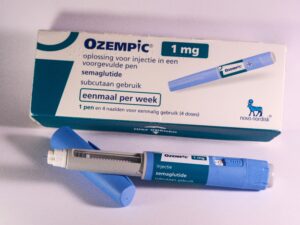On Monday, December 21, 2020, Congress approved another COVID-19 relief bill with enormous bipartisan support. The $900 billion package passed 91-7 in the U.S. Senate and 359-53 in the House of Representatives along with the $1.4 trillion omnibus spending bill to fund the operation of the federal government until September.
The voluminous 5,593-page legislation provides pandemic relief to individuals, businesses, various other sectors of the economy, and schools, and funds vaccines and testing.
Each party gave up a key provision to reach a compromise. Democrats relinquished financial aid to cities and states and Republicans acquiesced to remove the “Coronavirus liability shield,” which would restrict COVID-19 lawsuits.
Individual assistance
The bill calls for a $600 direct payment, pared down from the $1,200 payment in the first stimulus package, to every adult earning up to $75,000. People earning between $75,000 and $99,000 would receive a smaller amount. Individuals making over $99,000 will not be eligible for a stimulus check. Children will receive $600. Dependents over the age of 16 do not qualify, as was the case in the first round of stimulus payments this spring. American citizens and green card holders married to undocumented immigrants were excluded in the last stimulus bill, but will now be eligible for a direct payment.
The legislation extends the CARES Act’s Pandemic Unemployment Assistance program into March 2021. However, instead of $600 weekly benefits, unemployed workers will only receive $300 per week.
The revised benefits come with a caveat. Originally, people could self-attest that they were eligible for PUA. Now there is a new verification process designed to curb fraud that could impact nearly 10 million current recipients of the program as well as new applicants in 2021. Once the new stimulus bill is signed into law, individuals now receiving PUA benefits will have 90 days to submit documents to prove their eligibility. If recipients fail to do so they may have to return PUA funds received after the bill is enacted. At this point, it is unclear what documentation the Department of Labor or state agencies will require.
Self-employed, freelance, and gig workers are entitled to PUA benefits and should be able to prove eligibility by providing 1099 statements.
People directly impacted by COVID-19 in other ways are eligible for PUA benefits, such as not being able to work because they contracted the virus or are the caregiver for a sick household member; they were directed to self-isolate; their place of work was shut down because of the virus; a job offer is withdrawn, or they must provide “full-time supervision to a child or dependent while schools and care facilities are closed due to the virus.”
The measure includes $25 billion to help pay rent and extends the eviction moratorium until January 31, 2021.
The bill provides an additional $13 billion for the Supplemental Nutrition Assistance Program (SNAP).
Small business assistance
The pandemic package includes $284 billion for Paycheck Protection Program loans, which now includes nonprofits and local newspapers, along with TV and radio stations. Additionally, $15 billion is earmarked for live venues, independent movie theaters, and cultural institutions, which have struggled during the pandemic.
Included in the bill is $10 billion for child care centers to help providers reopen safely.
Vaccines
The legislation provides $68 billion for the purchase and distribution of COVID-19 vaccines and provides funds to states for testing and tracing. Of the $68 billion total, $20 billion is allocated to help provide free vaccines.
Agriculture assistance
There is $13 billion for farmers and agriculture, including funds under provisions of the Coronavirus Food Assistance Program for dairy and poultry producers, livestock, and growers.
Transportation assistance
There is $1 billion for Amtrak, $14 billion for mass transit authorities, $10 billion for highways, and $16 billion for airlines for salaries of workers and contract labor.
Education assistance
The measure includes $82 billion for schools and universities to assist with reopening, including $2.75 billion for private K-12 education.
Broadband
Included in the bill is $7 billion to increase access to broadband Internet, including a new Emergency Broadband Benefit to help millions of students and unemployed workers have affordable broadband.
Medical bills
The legislation provides an end to surprise medical bills. Under the new relief bill, patients would be required to receive a “true and honest cost estimate” at least three days before any scheduled procedure and directs that billing disputes would be handled by arbitration.
Tax-deductible meals
A provision sought by President Trump that is included in the bill allows businesses to deduct restaurant meals during 2021 and 2022.
Tax credits
The legislation provides $1.8 billion in tax credits for businesses to provide paid leave.
The bipartisan $2.3 trillion combined spending package was scheduled to be signed by President Trump, but Tuesday the president said he would likely veto the measure because he was unhappy with some of the provisions and wanted $2,000 direct payments. Speaker of the House Nancy Pelosi called for unanimous consent on Thursday for $2,000 but It was blocked by House Republicans. She is expected to have a roll call vote on Monday. President Trump left for Mar-A-Lago on Friday and it is unclear whether he will sign the bill, raising the specter of a possible government shutdown on Tuesday. Meanwhile, extended unemployment benefits are set to expire Saturday.










